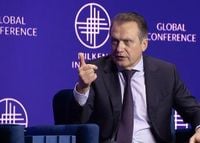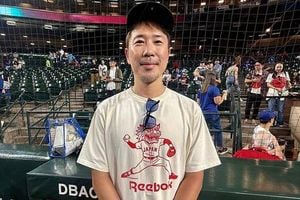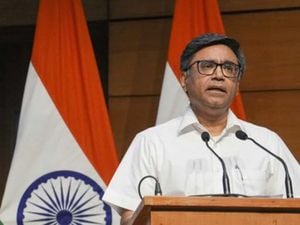On Monday, May 5, 2025, Gilberto Tomazoni, the Global CEO of JBS, one of the largest food companies in the world, emphasized the vital role of artificial intelligence (AI) in enhancing sustainable food production during the "Business and the Global Economy: Driving Growth and Innovation" panel at the Milken Institute's Global Conference 2025 in Los Angeles. Tomazoni stated that AI helps favor the use of fewer resources, thus making food production more sustainable.
During his address, Tomazoni asserted that innovation is crucial for boosting food security, arguing that sustainability equates to producing more with less. "The combination of biotechnology with AI can really accelerate productivity and drive everything forward," he said. He highlighted regenerative agriculture as a prime example of a practice that not only improves soil health but also fixes carbon and increases biodiversity.
Tomazoni underscored the need to place the food sector at the center of the sustainable growth agenda, especially given the growing global population and the rising demand for protein. He pointed out alarming data from the United Nations, noting that approximately 2.3 billion people currently face moderate or severe food insecurity.
In his remarks, Tomazoni also spotlighted the importance of supporting small farmers, who contribute to at least 30% of global food production. He stressed that these producers must have access to technologies such as AI and biotechnology, complemented by adequate technical and financial support to manage investment risks.
Ajay Banga, president of the World Bank, echoed Tomazoni's sentiments, emphasizing the need to keep small farmers on their land and view agriculture as a viable future. Banga suggested that this could be achieved through cooperatives, technology, better fertilizers, efficient marketing, better prices, and AI tools that enable farmers to identify crop diseases using their mobile phones.
Tomazoni shared practical examples of how JBS employs AI within its operations, including direct consumer connections to better understand needs and demand forecasting to minimize waste in both industry and retail. This approach not only enhances production performance in factories and farms but also positions JBS as a leader in sustainable practices.
As the global population continues to expand, the demand for protein is expected to increase significantly. Tomazoni believes that innovations like AI and biotechnology are essential for meeting this challenge. He stated, "I believe we can emphasize the food security agenda," reinforcing the need for a collective effort to tackle food insecurity.
The panel discussion included other notable figures such as Mariam bint Mohammed AlMheiri, Group CEO of 2PointZero, and Rich Lesser, Global Chair of BCG, with Gerard Baker from the Wall Street Journal moderating the session. Their collective insights highlighted the pressing need for innovation in agriculture to ensure that food production can keep pace with the growing global demand.
Ultimately, Tomazoni's message was clear: the future of food production hinges on the integration of advanced technologies like AI and biotechnology. As he aptly put it, "To be sustainable means producing more with less," a philosophy that could redefine the agricultural landscape in the years to come.




